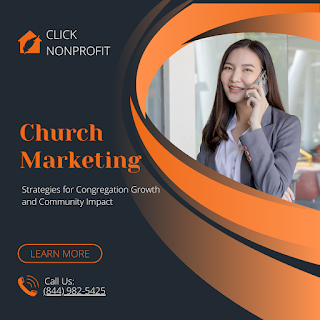Unveiling the Power of Digital Marketing for Churches
In a world increasingly defined by digital interaction, churches are embracing the transformative potential of digital marketing to connect with their congregations and extend their reach beyond traditional boundaries. Let’s see how digital marketing for churches is not just a modern necessity but a powerful tool for fostering community engagement, spreading the message of faith, and facilitating meaningful connections in the digital age.
The Digital Landscape for Churches:
- Online Worship Services: Digital marketing enables churches to broadcast worship services, sermons, and special events to a global audience. Through live streaming, social media platforms, and church websites, congregants can participate in services from the comfort of their homes.
- Community Building on Social Media: Social media is a dynamic space for building and nurturing church communities. Platforms like Facebook, Instagram, and Twitter allow churches to share inspirational content, engage in real-time conversations, and create a sense of togetherness even in the digital realm.
- Engaging Content Creation: Digital marketing empowers churches to create and share engaging content. From video sermons and podcasts to blog posts and visually appealing graphics, churches can use a variety of formats to convey their messages and connect with diverse audiences.
The Benefits of Digital Marketing for Churches:
- Increased Visibility and Reach: Digital marketing extends the reach of churches beyond their physical locations. Through online platforms, churches can connect with individuals who may not have discovered them through traditional means, fostering a more extensive and diverse congregation.
- Real-Time Communication: Digital channels enable real-time communication between church leaders and congregants. Announcements, prayer requests, and updates can be shared instantly, enhancing the sense of immediacy and connection within the church community.
- Targeted Outreach: Digital marketing allows churches to tailor their messages to specific demographics and target audiences. By understanding the unique needs and interests of different groups, churches can create more personalized and relevant content.
- Online Giving and Donations: Digital platforms facilitate seamless online giving. Churches can set up secure and user-friendly donation options on their websites or through dedicated apps, making it easier for congregants to contribute to the church’s mission.
- Event Promotion: Churches can use digital marketing to promote events, programs, and community outreach initiatives. Social media advertising and email campaigns help generate awareness and attract participants to various church activities.
- Data-Driven Insights: Digital marketing provides churches with valuable insights through analytics. By analyzing user engagement, website traffic, and social media metrics, churches can make informed decisions to optimize their digital strategies and improve communication
Challenges and Considerations:
While digital marketing for churches offers numerous benefits, it’s essential for churches to navigate potential challenges such as maintaining authenticity, respecting privacy, and adapting to evolving digital trends. A thoughtful and strategic approach ensures that churches leverage digital tools effectively while staying true to their core values.
Conclusion:
In a world where digital connections are increasingly prevalent, embracing digital marketing is not just a technological trend for churches; it’s a powerful means of fulfilling their mission. By harnessing the potential of digital platforms, churches can foster a sense of community, spread the message of faith, and create meaningful connections that transcend physical boundaries. Digital marketing is not a departure from tradition; it’s an evolution that empowers churches to carry their message to new heights and reach individuals in the digital spaces they inhabit.




Comments
Post a Comment